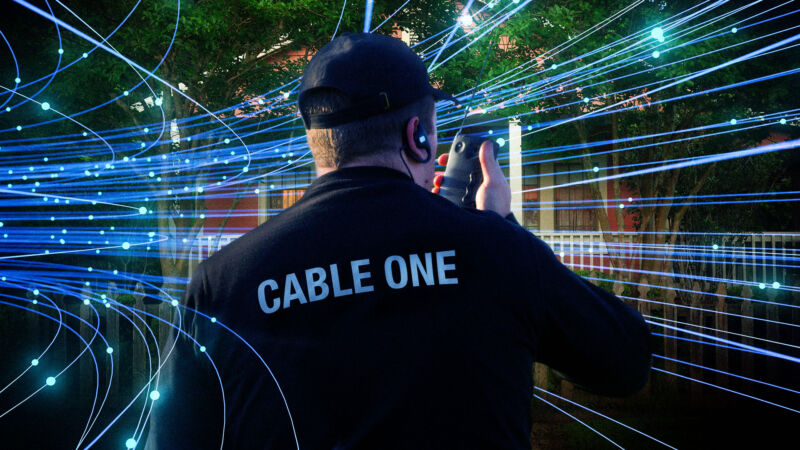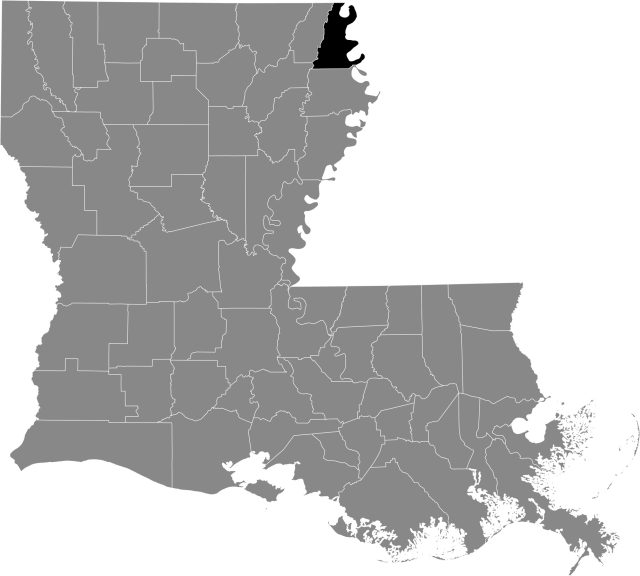
On October 17, Jonathan Chambers received an email that wasn't meant for him.
Chambers is one of the top executives at Conexon, a broadband company that has built and operates dozens of fiber networks in rural parts of America. Conexon recently won one of the Louisiana state government's GUMBO grants to deploy fiber-to-the-home service in East Carroll Parish, where the poverty rate of 37.6 percent is over three times the national average.
"This isn't our biggest project anywhere. But in many ways it's our most important," Chambers told Ars in a phone interview. Conexon primarily works with electric cooperatives, favoring a business model in which the local community owns the fiber network and Conexon operates it under a lease agreement.
But the East Carroll Parish grant—$4 million to serve over 2,500 households in an area that has been called one of the least connected in the state—is in limbo because of an eleventh-hour challenge from Cable One, a cable provider that offers services under its SparkLight brand name. Cable One plans to make similar challenges in other states; in fact, blocking government grants to other ISPs is one of Cable One's top priorities, according to the accidental email received by Chambers.
"Challenging publicly funded overbuilds is becoming one of the most important tasks we do as a company," Cable One Assistant General Counsel Patrick Caron wrote in the email.
"Overbuild" is a term cable and telecom companies use to describe what is more commonly known as "competition." But in the case of East Carroll Parish, the grant was awarded because of evidence that homes in the area are unserved or underserved. US broadband maps are often inaccurate, but the existing data shows East Carroll Parish needs more and better broadband, Chambers said.
"My market is the places where nobody's built networks. I'm not even trying to go into areas that are already served," he said.
“We have to get together and determine strategy”
Cable One challenged the East Carroll Parish grant after it was awarded, claiming that Cable One already serves the area where Conexon would build. Cable One lost that initial protest and was chided by the state broadband office for not providing evidence to back up its claims. But the company is appealing, so it isn't clear when or if Conexon can start installing fiber.
The purpose of Caron's misdirected email was to set up a meeting to discuss similar challenges the company can make in other states. Besides Chambers, the email went to several Cable One executives.
"We have to get together and determine strategy around Arkansas and Missouri challenges immediately," Caron wrote, noting an October 31 deadline for challenges in Arkansas. He added that "AR and MO are no exceptions" to Cable One's strategy of challenging grants awarded to other ISPs.
Chambers told Ars he didn't respond but forwarded the message "to some friends saying, you know, 'get a load of this.'" The email was shared with Ars by the Institute for Local Self-Reliance's Community Broadband Networks Initiative, which works to expand locally owned broadband options and has been covering the East Carroll Parish saga.

"The only thing surprising about this is the Machiavellian thinking on display in the email has accidentally made its way out into the open," Sean Gonsalves, a reporter, editor, and researcher for the group, told Ars. The challenges are "bad for the millions of unserved and underserved across the country living in communities without access to reliable and affordable broadband, including those communities that are served by a monopoly provider," Gonsalves said.
"That's why we think it's important for states to have laws in place to discourage incumbent providers from filing fraudulent challenge claims like they have on the books in Minnesota and Colorado," he added. (Gonsalves explained those laws in this article.)
Louisiana's GUMBO (Granting Unserved Municipalities Broadband Opportunities) awards rely on federal funding from the American Rescue Plan. The next major decision from a Louisiana government official on the East Carroll Parish grant is expected by December 9 if no agreement is reached before then. The process could be dragged out further if Cable One escalates its challenge to the district court.
"This is typical incumbent behavior," Chambers said. He said the email from Caron shows that Cable One "decided that this is really important, or at least this one fellow thinks it's really important as a matter of corporate policy. Mind the email didn't say, 'Hey, it's really important that we build networks.'"
A very late challenge
Chambers also criticized Cable One for not challenging during the initial periods for dispute resolution. State officials held one "protest window" from January to March and later added a supplemental round that allowed further protests for 30 days in July, as explained by the state government. Awards for Conexon and other ISPs building elsewhere in Louisiana were announced on July 25, with Gov. John Bel Edwards visiting Lake Providence in East Carroll Parish to announce grants totaling $130 million across the state.
But the state regulations governing the grant program allowed another protest period of up to seven days after the announcement of awards. "There was this brief one-week period, which I think was set up by the legislature to catch any kind of errors... That's when Cable One came in, after everybody else had done their work," Chambers said.
East Carroll Parish residents had scheduled a launch event with Chambers to begin signups for Internet service but scrapped the event when Cable One stepped in to block or at least delay the project.
"The governor flew into Lake Providence on a helicopter to give the grant and now this is happening," resident Laura Arvin said in a podcast with the Institute for Local Self-Reliance. Lake Providence is the parish seat and has about 3,500 residents.
reader comments
137